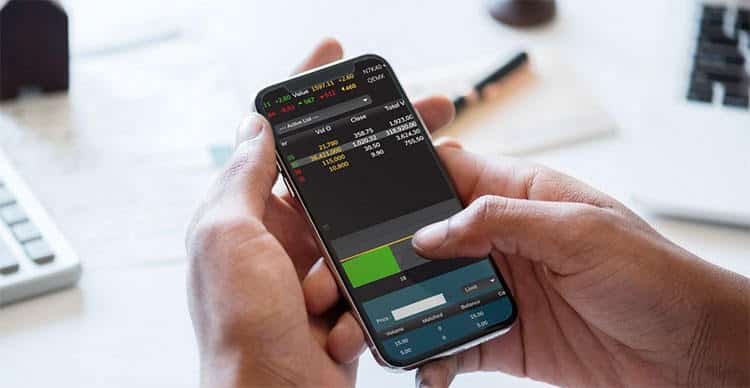Human behavior and attitude towards money and CFD trading

With approximately 5 trillion dollars traded daily, the forex market is the largest and among the most complex markets. It is made up of individuals, banks, company and financial institutions transacting on a daily basis. The regular market movements are as a result of decisions made by these stakeholders. The human behavior is very complex; there is no way a system or a mathematical expression can summarize it. The forex market and trading are not like conventional theories where some factors are held constant, in forex all elements are at play at the same time. Understanding how people behave and how emotions can get into our way of success is the beginning point of a successful trading career. In this article, we shall discuss some emotional factors that hinder many traders from succeeding in their career. In forex, the 80/20 rule comes into play; it is 20% trading method and 80% your behavior towards money and trading. Here are the main behavioral traits that get into our way of trading, and how to overcome them.
Greed
Correct me if am wrong, I am a firm believer that greed comes in even before we begin trading. The high expectations of making quick cash end up ruining your trading career. Everyone wants some decent returns. In most cases, the returns drive us into trading CFDs or even commodities. This desire sometimes could lead traders into making irrational decisions. Greed is manifested in some ways, including overtrading, holding on to trades for too long and overleveraging.
To overcome greed, first you need to know that you will not be able to trade every good signal in the market, sometimes you let it go. Do not try to be in every trade at every single time. Secondly, maintain a trading journal, clearly explain the conditions that must be met to get into a deal. I simple terms, plan your trade and trade your plan. Thirdly, trade like a sniper, take a few high-quality shots, do not shoot at every opportunity that presents itself. Last but not the least, give your trades time to play out. When you monitor your trades actively, there is a temptation to readjust that stop loss or even the take profit. By observing the trades emotions come into play, keep off the trades.
Fear
Fear is an emotional feeling brought about by an impending danger. In trading CFD, anxiety can get into our way of trading. It can affect how we make decisions and in turn affect our trading career negatively. Successful traders will always control their fears while newbies and the unsuccessful traders let fear control them and the decisions they make. Experienced traders will focus and concentrate when in this state of heightened arousal while the inexperienced traders will panic and freak impairing their judgment.
Fear can be broken into three that is, the fear of loss, fear of missing some good trades and the fear of being wrong. The fear of loss can cause traders to put in tight stop losses limiting your trade’s breathing space. Your trades will need some space to play out, if you tighten your stop losses, then your deal will exits prematurely with a small loss. If this happens repeatedly, they can drain your account before you realize it. To overcome this emotional feeling, try trading on demo accounts, and only afterwards can you trade real cash.
Fear of missing an opportunity will cause traders to jump into the market without evaluating the potential downside of a trade. You will have to put this fear in check to be a successful trader. This fear leads to overtrading and eventually blows your account. It would be better to miss an opportunity rather than trying to force trades where there is nothing worth trading.
Euphoria
Euphoria is the most insidious emotion that affects many traders. You will never realize it creeping in, but if not correctly checked will bring you to a dead end. After a series of winning trades, the pleasant feeling may lead us to be overconfident. Overconfidence may give a trader the “know it all”attitude. This feeling becomes engrained in our minds, we begin perceiving less risk than there is, and this is a path down the deadly route. Euphoria in CFD trading can lead to overtrading, risk more, overleverage, which as we all know, have deadly consequences. If you have a trading method and a trading plan, following the two will go a long way in fixing this vice.
Panic
Traders will panic if they have had a series of losing trades. At this point, some traders will think they are not good enough and quit. Some will think the reason they are not making it big is that they are not lucky enough. A few will think their analysis was wrong; they will spend so much time over-analyzing the charts, what we call analysis paralysis. You over analyze the market and end up focusing on the wrong things. Try to apply proper money management skills. Do not raise your position size until you have the full knowledge and understanding of how forex works.
Maintaining a trading plan is one of the fastest ways of getting rid of emotions in trading CFD. It helps in keeping your logic intact, and at the same time, it is the only tangible item to support your decision. Trading plan will not just keep your emotions in check; it will be a way of documenting every trading-related action you take. It is a point of reference and will be helpful in learning from your past mistakes. A good trading plan defines what ought to be done, when, why and how to be done. It carries with it your (trader) personality, your risk management and rules, trading system and your expectations.
Have you read?
# Top 20 Richest Sports Team Owners In The World, 2018.
# India Rich List For 2018: Richest Indian Billionaires.
# China Rich List For 2018: Richest Chinese Billionaires .
# Richest Women In The United States For 2018.
Bring the best of the CEOWORLD magazine's global journalism to audiences in the United States and around the world. - Add CEOWORLD magazine to your Google News feed.
Follow CEOWORLD magazine headlines on: Google News, LinkedIn, Twitter, and Facebook.
Copyright 2025 The CEOWORLD magazine. All rights reserved. This material (and any extract from it) must not be copied, redistributed or placed on any website, without CEOWORLD magazine' prior written consent. For media queries, please contact: info@ceoworld.biz











